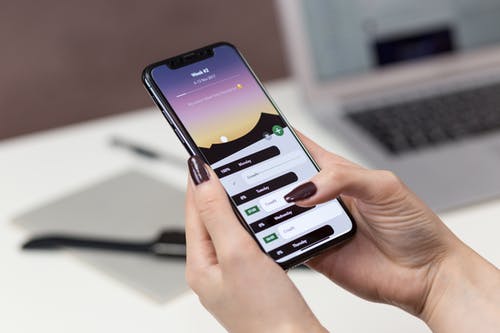Are Fertility Tracking Apps Doing More Harm than Good?
 Gone are the days of writing down with paper and pen what you eat or when you exercise, how much you weigh, or what your blood pressure might be. Today, there are apps for that…apps that track many different aspects of your health or of health-related activity.
Gone are the days of writing down with paper and pen what you eat or when you exercise, how much you weigh, or what your blood pressure might be. Today, there are apps for that…apps that track many different aspects of your health or of health-related activity.
As a matter of fact, about one in four adults in the U.S. note that they use some sort of technology to track weight, diet, exercise, medication, medical symptoms, and more.
So it’s no wonder that women whose major goal is to get pregnant are taking advantage of technology to track their menstrual cycle, temperature, physical symptoms, and more.
Many find it helpful…but when is today’s technology too much for the women who is already struggling? And does it provide solace or create stress?
Fertility tracking apps good for some, not for others
Recently, a PhD student and an assistant professor in the informatics department at University of California Irvine received grants that allowed them to take a closer look at how women dealing with fertility issues responded to apps that were designed to make it easier to detect ovulation day.
The data they collected showed that some women found fertility-related apps to be virtual god-sends while others found they created anxiety, which only added to their already growing stress over their inability to conceive.
By analyzing threads on online fertility forums, they examined women’s experiences with their personal data, specifically because fertility tracking apps aim to facilitate data collection and reflection, the study authors noted.
How the women responded to their data largely determined whether or not they were successful with fertility-related phone applications.
The authors came up with five different descriptions of these responses.
- Positive – These are usually newbies to tracking. They’re excited about learning to track and about understanding their bodies and are eager to use technology to help.
- Burdened – These women have begun to increase the amount of data they track and are beginning to feel burdened and slightly stressed about the overall task of tracking, though they are still fairly positive about the entire process.
- Obsessive – These individuals are starting to let tracking consume their lives and often see any symptom or change in their bodies as a reason to go online and enter data. They often over-track and become extremely anxious.
- Trapped – Those who feel trapped are likely women who have been tracking and trying to conceive for a fairly long period of time. They often express signs of despair as well as dependence on their tracking. Many times, they express a desire to stop tracking.
- Abandoning – For these women, tracking becomes so emotionally draining that many choose to stop tracking altogether. They need a break from the constant worry about things like taking their temperature, having intercourse “on time”, and dealing with medications.
So what needs to be changed?
While most women who are trying to conceive agree that having a fertility tracking app on their phone is convenient, those who fall into the last three categories are likely experiencing emotions connected with overuse of the app.
At that point, such self-tracking can negatively impact their lives and, hence, their ability to conceive.
The study authors suggest that an understanding of individuals’ emotions and behaviors when self-tracking needs to make its way into the tools these women use.
They conclude that “the same tools and activities can generate almost opposite consequences for different people.” They cite an example involving weight and dieting apps, which can be extremely helpful to some but quite problematic for others, especially those with eating disorders.
Finally, the authors point out, those who use online tracking tools may need different types of support, depending on their engagement with their health data.
“In the fertility case, if the engagement is more problematic, tools could suggest cycles with reduced tracking, offer stress management suggestions or maybe even suggest taking breaks,” they write.
“Apps could also highlight the variability of fertility; note the characteristics and problems of different measures; and avoid presenting pregnancy as the only possible success.”
